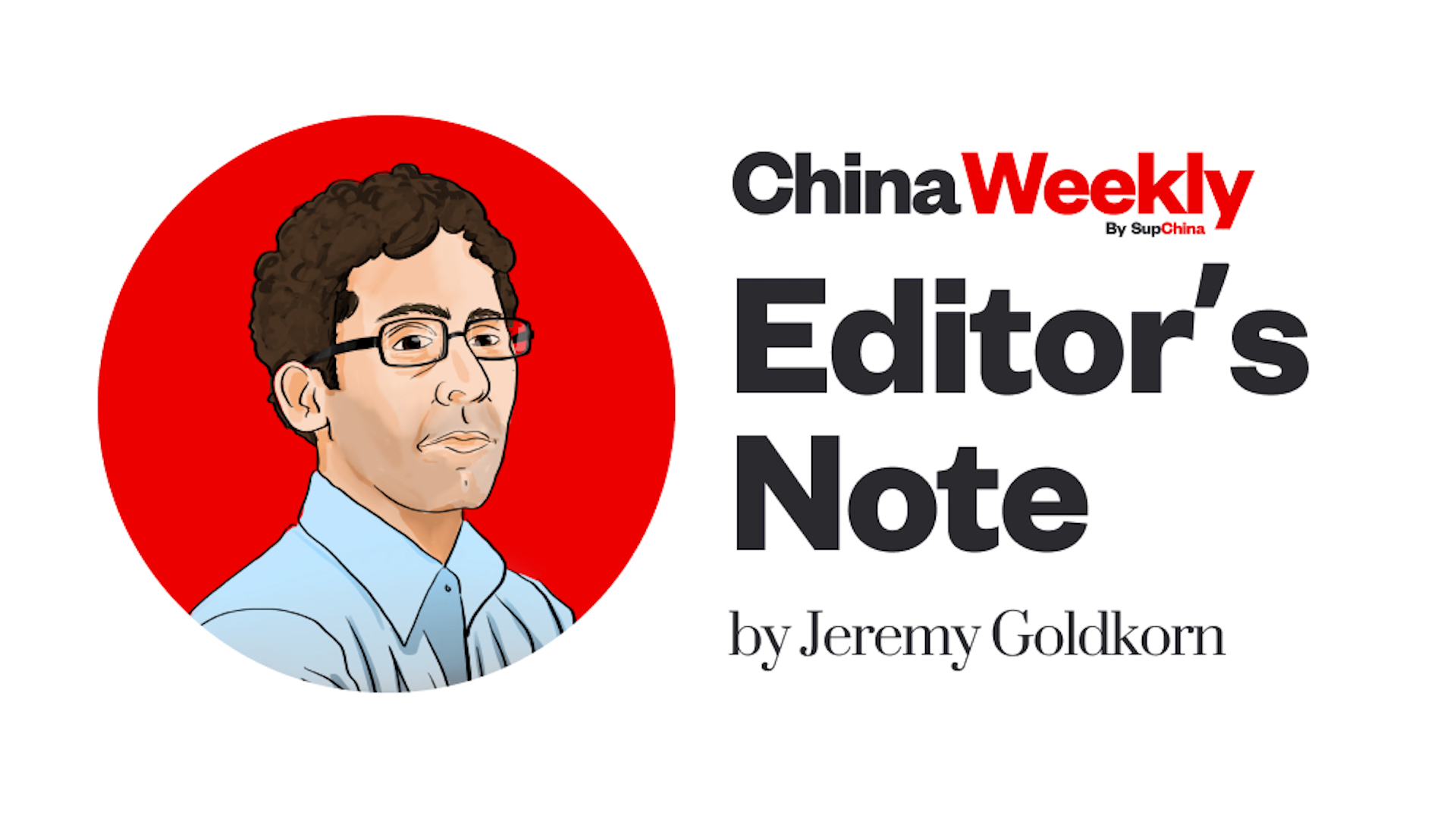Pacific palaver — Editor’s note for Friday, May 27, 2022
A note for Weekly newsletter readers from Jeremy Goldkorn.

Dear reader,
On Monday, May 23, Joe Biden said the U.S. would intervene militarily if China invaded Taiwan. Speaking in Tokyo, he also had a hug-in with the other three leaders of the Quad countries (Japan, India, and Australia), and unveiled a new economic initiative in the Indo-Pacific that is of unclear attractiveness to the nations of the Indo-Pacific.
Yesterday, May 26, Biden’s foreign minister, Anthony Blinken, gave a speech that was billed as a clarification and announcement of the administration’s China policies. As I commented yesterday, it was a nothingburger. The overall message amounted to not much more than “America’s still great, and we’re watching you, China, so be careful!”
Not to be outdone, Xí Jìnpíng 习近平 and his government responded with vigor. While Biden was in Tokyo on May 24, bombers from the Chinese and Russian air forces together held an “aerial strategic patrol” near Japan.
Meanwhile, China’s jet-lagged foreign minister, Wáng Yì 王毅, set off on a tour of eight Pacific Island nations: The Solomon Islands, Kiribati, Samoa, Fiji, Tonga, Vanuatu, Papua New Guinea, and East Timor. Wang is also scheduled to conduct an online video meeting with the leaders of the Federated States of Micronesia. This latest round of diplomatic activity will not please the U.S. and Australian governments, which are already freaked out by a new security pact between China and the Solomon Islands.
As Nadya Yeh asked yesterday on The China Project: “It’s an open question if the ‘free and open Indo-Pacific’ will be a match for ports, bridges, and cell phone towers that will be built by Beijing.”
Of course, if China’s economy tanks, Beijing may be less generous with the bridge and cell phone tower money in the South Pacific. It seems very clear that there are tough times ahead for China’s economy, as you can see from my recent interviews with economist and former Morgan Stanley executive Stephen Roach, J.P. Morgan’s Joyce Chang, veteran China entrepreneur and financial analyst Anne Stevenson-Yang, and Bloomberg’s Sofia Horta e Costa.
But the Chinese government is doing everything it can to bolster the economy. At the end of April, Xi Jinping announced a new bout of infrastructure spending, the Communist’s Party’s old favorite method of stimulus. The government has also been retreating somewhat from its crackdown on tech companies, which are the country’s most extraordinary growth engines. And this week, the State Council called an unprecedented teleconference with top government leaders all over the country to discuss fixes for the malaise.
Maybe it’s working. Chinese stock markets and shares of U.S.-listed Chinese companies are all up today, some significantly. It’s probably because Alibaba and Baidu reported higher than expected sales growth, and fickle investors will react to any piece of news that inspires either hope and greed, or fear.
You can’t count China out, no matter how bad the quarterly numbers are, or how terrible it is to live in Shanghai right now. So if there’s one takeaway from this week’s news, it’s that the United States is going to have to get used to a sharp-elbowed peer competitor in the Pacific.
Which brings me to the word “palaver” in the headline above: It’s a word from my childhood in South Africa that is common slang in various African countries and amongst older Brits. It is derived from the Portuguese palavra, meaning “word.” It came to mean a meeting between two groups who don’t share a language or culture, but now is often just used to mean a lot of unproductive meetings and talking.
Related to the Pacific palaver is the subject line of today’s email: “Is there enough space in the Pacific Ocean?” It’s a reference to a remark made several times by Xi Jinping in meetings with former president Barack Obama, and regularly but less frequently since 2016: “The vast Pacific Ocean has ample space for the two great powers of China and the United States” 宽广的太平洋有足够的空间容纳中美两个大国.
Our phrase of the week is: feeling fish (摸鱼 mō yú), a slang word for slacking off or taking it easy.
Appropriately enough, we’re taking Monday off for the U.S. Memorial Day. We’ll be back in your inbox on Tuesday.
Read on for a new Q&A and summaries of our best work this week. Or click here to read about and see photos from our Women’s Conference last week.






